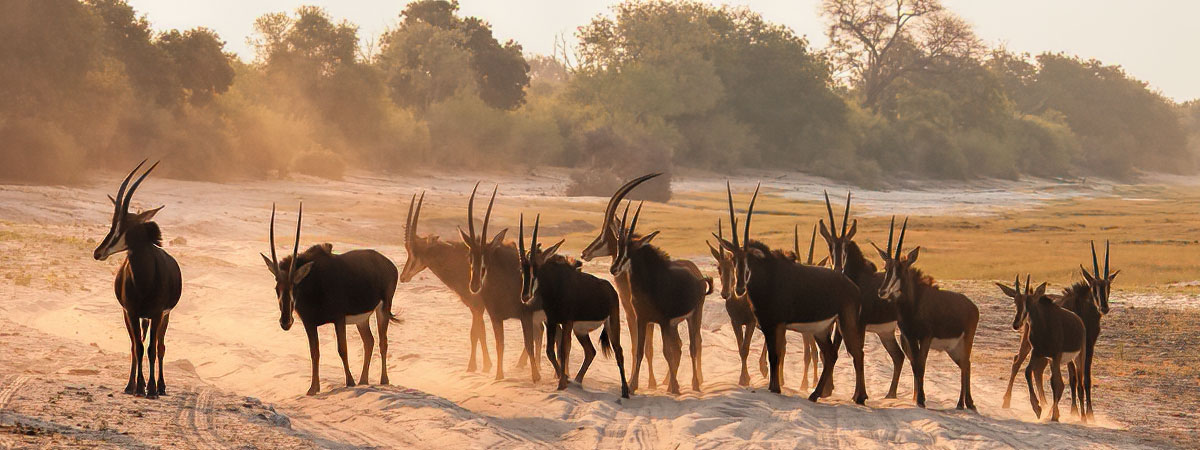2013 has been a disastrous year for Africa’s rhinoceros and elephant populations.
South Africa has seen a record number of rhinos poached and in other countries Africa’s elephants are being killed at an unprecedented rate and Tanzania has been one of the countries worst affected.
Conservationists and campaigners have been in overdrive; raising public awareness through relentless media campaigns, lobbying and haranguing governments to put pressure on the Asian nations that account for the vast bulk of the demand that drives the trade in illegal ivory and rhino horn and desperately urging the everyone in the countries where this catastrophic poaching is taking place to do everything within their power to take the fight to the poachers.
It is a stark indicator of the scale of the problem that, despite all these efforts poachers seem to be operating with impunity in many countries and nothing that is being done seems to be able to put the brakes on the slaughter.
Tanzania’s anti-poaching shambles
But, though countries like Botswana, South Africa and Kenya can demonstrate vigorous efforts and a real will to take on the poachers, Tanzania’s efforts are in total disarray.
Wipe Out wiped out
The country’s flagship anti poaching operation ‘Operation Tokomeza (wipe out) has been suspended after serious and sustained human rights abuses by the forces tasked with implementing the policy and after recriminations have rumbled on for over a month, 4 government ministers have now been sacked for their part in the fiasco. The ministers are Mr Kagasheki (Natural Resources and Tourism), Dr Emmanuel Nchimbi (Home Affairs), Mr Shamsi Vuai Nahodha (Defence and National Service) and Mr Mathayo David Mathayo (Livestock Development and Fisheries).
President Kikwete trys to stop the rot
Tanzania’s President Jakaya Kikwete addressed the country’s parliament and pledged that the nationwide anti-poaching drive will resume after assessing and rectifying the weaknesses in the campaign implementation. He condemned dishonest officials whom he accused of tarnishing the well-intentioned drive, vowing to put to task all those responsible for the irregularities.
“Poaching is real and the nation cannot remain silent on the matter, hence corrective measures are necessary to safeguard wildlife for the present and future generations,” he explained. “Tokomeza is a right move. If we don’t take action now it will be like giving permission to poachers and the future generation would judge us.”
According to latest figures, poachers kill an estimated 30 elephants every day in Tanzania, or about 850 every month. Wildlife experts have warned that the entire population could be wiped out by 2020 if the poaching continues
So what went so badly wrong?
How can a country with such a richness of wildlife resources be so inept at managing them?
Operation Tokomeza exposed
Operation Tokomeza was conceived by the Ministry of Natural Resources and Tourism after it realized that poaching, particularly elephant poaching, was posing a very serious threat to the country’s wildlife. It was a well-meant and wise decision by Mr Kagasheki to come up with the initiative.
Whilst it may have been well intentioned, the implementation of Tokomeza was not.
Owing to the enormity of the poaching scourge, coupled with the desire to have the operation carried out to its logical end, it must have been apparent that game wardens under the Tanzania National Parks (TANAPA), on their own, would not have been up to the job and the government deemed it desirable to bring the army and the police force on board.
However, after a long running series of complaints Operation Tokomeza was suspended and an investigation launched.
It came to light that the operation which was meant to fight poachers across the country was regularly abused with forceful confiscation of livestock, unlawful collection of money from both farming communities and livestock keepers. Presumably because the security forces concluded that the farmers and herders grazing their livestock in and around the national parks were responsible for the poaching.
The revelations came in a report tabled in the House by a select-committee under the Parliamentary Committee on Land, Natural Resources and Environment chaired by Kahama MP James Lembeli (CCM).
It has also been repeatedly alleged that senior members of the country’s governing elite are hand in glove with the poachers and MPs challenged the parliamentary committee to reveal names of political big wigs suspected to be part of a poaching syndicate. The politicians are said to have sabotaged the operation for their personal interests.
The whole affair is further complicated by the fact that certain MPs have undoubtedly used Tokomeza and forces charged with implementing it, to settle personal scores of their own.
Where does this leave Tanzania’s wildlife?
Whilst recriminations within Tanzania and its parliament will continue for months to come, of far greater concern to those who are genuinely fearful for the future of the country’s wildlife is the damage that this fiasco has done to the country’s ability to protect its endangered species.
For any anti poaching initiative to have a chance of success there are two key things that are needed:
1> The will of the government to commit the necessary resources to the fight.
2> The involvement of the local population. The communities in and around the areas where wildlife is to be protected and poachers are to be excluded must see a benefit for themselves in the fight.
There is, of course, a third and over-riding factor and that is a reduction in the demand that makes poaching such lucrative employment in the first place.
Reducing the demand, however, is a global task; the responsibility of every nation.
Strenuous and concerted efforts are being made on all levels to wean the Chinese, Vietnamese and other Asian nations off their addiction to ivory and rhino horn. There are even signs that the message is getting through.
But whilst neighbouring countries take steps in the right direction, Tanzania is moving backwards.
Major Setback
The setback caused by the ineptness of Operation Tokomeza is almost impossible to quantify but what we can be sure of is that instead of bringing the Tanzanian people onside in the fight against poaching Tokomeza has alienated many.
Instead of gaining respect and trust through the diligent management of Tokomeza the country’s members of parliament have earned the emnity and contempt of their constituents as their greed an corruption is exposed for all to see.
Where the campaign in Kenya has the energetic and articulate Dr Paula Kahumbu and First Lady Margaret Kenyatta as champions and Botswana has the President himself, Ian Khama, leading the fight, Tanzania’s anti-poaching efforts have no champion. And it shows.

